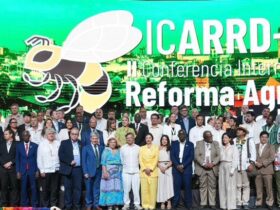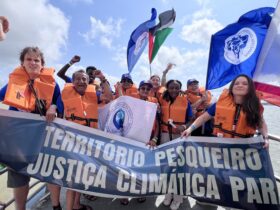On October 18, 2024, the World Forum of Fisher Peoples (WFFP) and Coastal Action Network (CAN) hosted a pivotal webinar titled “Re-imagining Fisher Peoples’ Identities: Political Challenges and Path Forward.” This event brought together global leaders and activists to address the evolving identities of fisher peoples and the significant political and economic challenges they face in a rapidly changing world.
The webinar was introduced by M.J. Vijayan of the South Asian Solidarity Collective (SASC), followed by opening remarks from Herman Kumara, General Secretary of WFFP. The session featured prominent voices such as Naseegh Jaffar (former General Secretary of WFFP, South Africa), M Pushparayan (an ideologue of fisher movements in India), Ms. Shalmali Guttal (Working Group member on the UN Declaration on the Rights of Peasants), Piya Thetyaem (Secretary General of the Federation of Thailand Fisherfolks Association), and Nus Ukru from Indonesia’s Baileo Maluku. The panel also included Mads Barbesgaard from the Transnational Institute (TNI).
Throughout the discussions, participants reflected on the historical and cultural identities of fisher peoples, exploring the deep connections between these communities and their coastal and riverine environments. Fisher peoples, also referred to as artisanal fishers, fishing tribes, or sea nomads, have long relied on the Ocean and Coast Ecology (OCE)—a term encompassing rivers, coasts, oceans, and related ecosystems—as their territories. For centuries, these communities collectively governed and conserved their waters, coasts, and surrounding environments, known as the Fisher Commons.
However, the speakers highlighted how the growing globalized and industrialized economy had led to the appropriation of these commons. This process, referred to as Ocean Grabbing, involved nation-states and corporations seizing control of coastal and marine areas for profit under initiatives like the Blue Deal. Such actions have often marginalized fisher peoples, alienating them from their livelihoods and traditional ways of life.
The discussion also explored the critical role fisheries play in both the economy and global food security. Fish remains a vital source of protein for over a billion people, particularly in developing nations. Additionally, the webinar emphasized how millions of individuals, especially women, rely on fisheries for their livelihoods in roles spanning the supply chain, from fishing to processing and marketing.
Key questions posed during the webinar included:
- How do fisher peoples define themselves in terms of class, caste, and gender?
- What cultural and socio-political identities shape their lives?
- How do fisher communities relate to the custodianship of their land and water territories?
- Why are fisher peoples, despite their longstanding contributions, often excluded from mainstream historical narratives?
The event also explored how fisher peoples shared commonalities with other food producers and rural communities. Respondents like Carsten Pedersen from TNI and Jones T Spartegus from PAR provided further reflections on the insights shared.
The session concluded with closing remarks from Jesu Rethinam, Coordinator of WFFP’s Asia Pacific Continental Fora and WFFP Coordinating Committee Member, who emphasized the importance of solidarity and collective action in addressing these global challenges.
The webinar successfully fostered dialogue on reimagining the identities of fisher peoples while offering a path forward to resist marginalization and reclaim their rights over their coastal and ocean territories.


